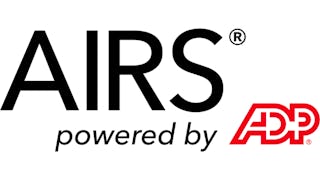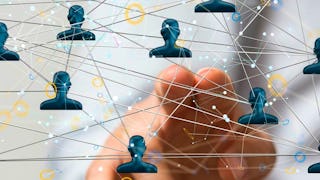Filter by
SubjectRequired
LanguageRequired
The language used throughout the course, in both instruction and assessments.
Learning ProductRequired
LevelRequired
DurationRequired
SkillsRequired
SubtitlesRequired
EducatorRequired
Explore the Social Responsibility Course Catalog

O.P. Jindal Global University
Skills you'll gain: Diplomacy, Intelligence Collection and Analysis, Surveys, Environmental Laws, Environment, Qualitative Research, Sampling (Statistics), R Programming, Environmental Issue, Political Sciences, Statistical Analysis, Economic Development, International Relations, Cybersecurity, Public Safety and National Security, Socioeconomics, Governance, Mitigation, Social Studies, Social Sciences

Automatic Data Processing, Inc. (ADP)
Skills you'll gain: Interviewing Skills, Coordinating, Recruitment, Professional Networking, Rapport Building, Labor Compliance, Communication, Compensation Management, Organizational Skills

Pontificia Universidad Católica de Chile
Skills you'll gain: Epidemiology, Public Health and Disease Prevention, Health Disparities, Biostatistics, Health Policy, Health Systems, Healthcare Ethics, Descriptive Statistics, Statistical Hypothesis Testing, Health Technology, Public Health, Infectious Diseases, Health Care, Scientific Methods, Health Equity, Community Health, Preventative Care, Statistics, Research Design, Research Methodologies

Pontificia Universidad Católica de Chile
Skills you'll gain: Epidemiology, Public Health and Disease Prevention, Descriptive Analytics, Business Analytics, Biostatistics, Gerontology, Health Policy, Healthcare Ethics, Digital Transformation, Descriptive Statistics, Health Equity, Assertiveness, Statistical Hypothesis Testing, Telehealth, Health Disparities, Public Health, Object Oriented Programming (OOP), Program Evaluation, Occupational Safety and Health Administration (OSHA), Health Systems
 Status: NewStatus: Free
Status: NewStatus: FreeCoursera Instructor Network
Skills you'll gain: Technical Communication, Technical Product Management, Workflow Management, Performance Metric, Data Analysis, Agile Methodology, Project Management, Stakeholder Communications, Communication, Data-Driven Decision-Making, Machine Learning, Artificial Intelligence and Machine Learning (AI/ML), Large Language Modeling, R Programming
 Status: New
Status: NewSimplilearn
Skills you'll gain: Data Ethics, General Data Protection Regulation (GDPR), Ethical Standards And Conduct, Generative AI, Business Ethics, Information Privacy, Personally Identifiable Information, Regulatory Compliance, Healthcare Ethics, Compliance Management, Artificial Intelligence, Data Security, Regulatory Requirements, Regulatory Affairs, Data-Driven Decision-Making, Accountability, Social Sciences

University of Illinois at Urbana-Champaign
Skills you'll gain: Process Improvement, Supply Chain, Supply Chain Management, Supply Chain Systems, Operations Management, Supply Chain Planning, Business Operations, Process Analysis, Statistical Process Controls, Change Management, Learning Management Systems, Instructional Design, Education Software and Technology, Augmented and Virtual Reality (AR/VR), Game Design, Solution Design, Project Management, Interactive Design, Requirements Analysis, System Implementation

Skills you'll gain: Instagram, Storytelling, Content Creation, Social Media Content, Content Performance Analysis, Video Production, Social Media, Brand Strategy, Photography, Graphic and Visual Design, Social Media Marketing, Social Media Strategy, Brand Awareness, Drive Engagement, Content Strategy, Target Audience

O.P. Jindal Global University
Skills you'll gain:

Skills you'll gain: Facebook, Social Media Content, Content Creation, Social Media Management, Social Media, Content Performance Analysis, Social Media Strategy, Content Strategy, Drive Engagement, Video Production, Photo/Video Production and Technology, Storytelling, Community Development, Workflow Management, Target Audience, Live Streaming

Skills you'll gain: New Product Development, Social Media Strategy, Business Strategy, Supplier Relationship Management, Ideation, Entrepreneurship, Social Media Marketing, Project Controls, Stakeholder Engagement, Social Media, Product Development, Decision Making, Content Marketing, Process Analysis, Strategic Decision-Making, Business Operations, Business Planning, Lean Methodologies, Strategic Thinking, Innovation

Skills you'll gain: New Product Development, Research Methodologies, Intellectual Property, Performance Measurement, Financial Modeling, Design Thinking, Value Propositions, Private Equity, Team Building, Social Media Strategy, Business Modeling, Active Listening, Business Planning, Business Strategy, Supplier Relationship Management, Ideation, Entrepreneurship, Creativity, Stakeholder Engagement, Corporate Sustainability
Social Responsibility learners also search
In summary, here are 10 of our most popular social responsibility courses
- M.A. in International Relations, Security, and Strategy: O.P. Jindal Global University
- Coordinating and Conducting Interviews : Automatic Data Processing, Inc. (ADP)
- Certificado en Bases de la Salud Pública: Pontificia Universidad Católica de Chile
- Certificado en Gestión y Políticas en Salud Pública: Pontificia Universidad Católica de Chile
- Data and Machine Learning for Technical Product Managers: Coursera Instructor Network
- Ethics of Generative AI: Simplilearn
- Instructional Design MasterTrack® Certificate: University of Illinois at Urbana-Champaign
- Creating Engaging Content for Instagram: Coursera
- Bachelor of Science in Psychology: O.P. Jindal Global University
- Creating Engaging Content for Facebook: Coursera










